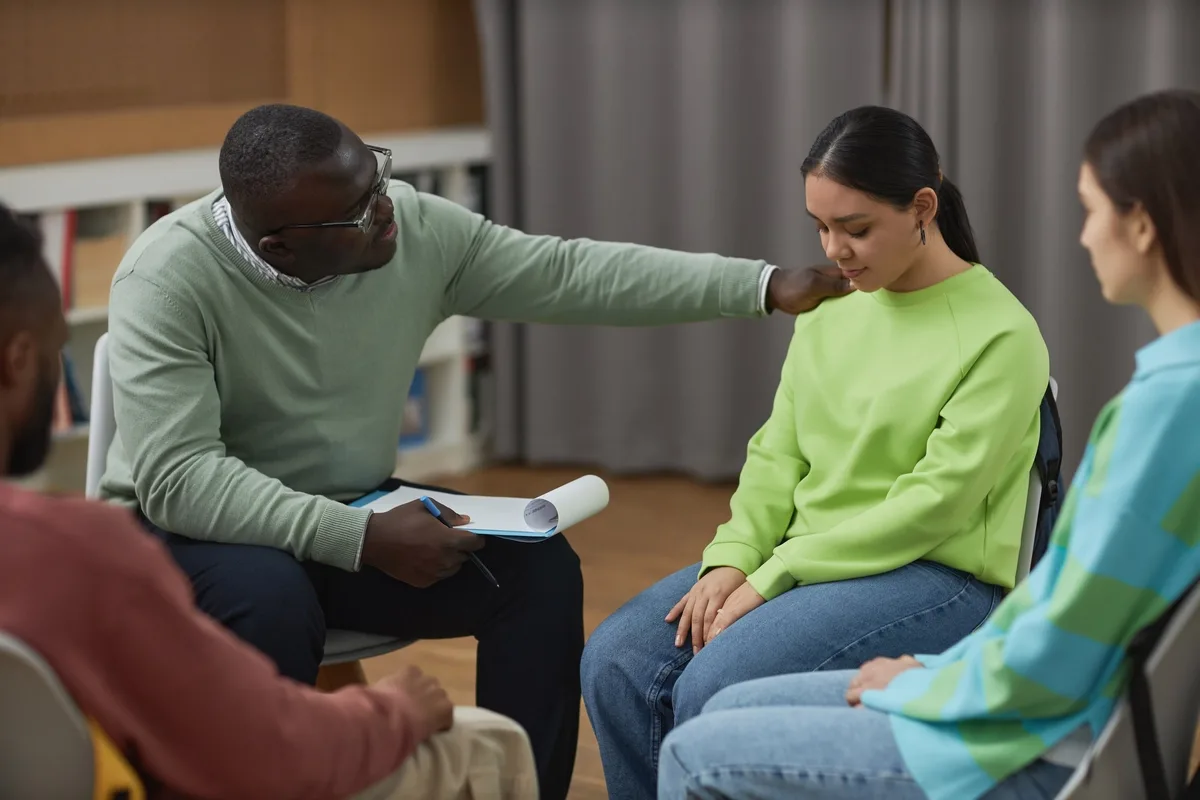24/7 Helpline:
(866) 899-221924/7 Helpline:
(866) 899-2219
Learn more about Dual Diagnosis Rehab centers in West Hollywood
Dual Diagnosis Rehab in Other Cities

Other Insurance Options

Choice Care Network

MVP Healthcare

Sliding scale payment assistance

Humana

Access to Recovery (ATR) Voucher

Carleon

Group Health Incorporated

Self-pay options

BHS | Behavioral Health Systems

CareSource

Health Choice
Beacon

Health Net

Excellus

Magellan

UMR

Anthem

PHCS Network

Holman Group

State Farm

Insight Choices
Insight Choices, in West Hollywood, California, provides outpatient mental and behavioral health car...

CAST Centers
CAST Centers offers PHP and IOP treatment for those struggling with substance abuse and mental healt...







































Twin Town Treatment Centers
Twin Town Treatment Centers - Santa Monica Boulevard offers outpatient treatment for individuals wit...

WHRC – West Hollywood Recovery Center
WHRC – West Hollywood Recovery Center is a non-profit rehab located in West Hollywood, California. W...

Breathe Life Healing Centers
Breathe is dedicated to outstanding trauma-informed clinical care to each client and their family. B...

The Bill Coffey House Sober Living
The Bill Coffey House Sober Living is a private rehab located in West Hollywood, California. The Bil...



